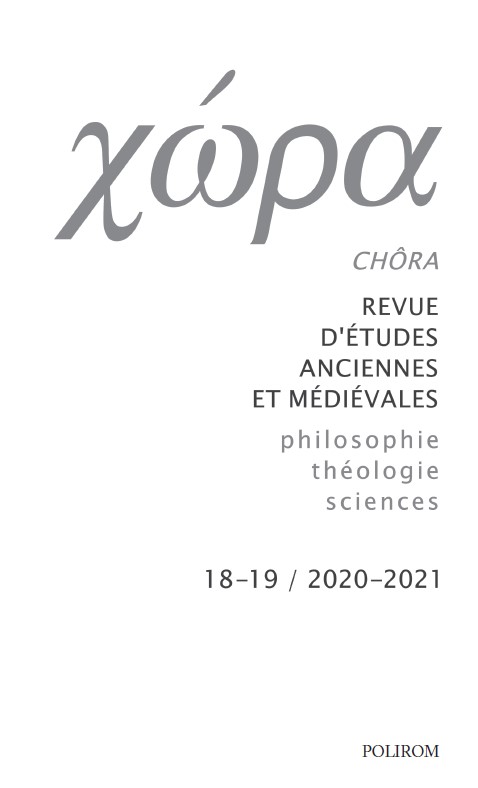ESSENCE, INDIVIDUALITÉ ET PERSONNE CHEZ THOMAS D’AQUIN
ESSENCE, INDIVIDUALITY AND PERSON IN THOMAS AQUINAS
Author(s): Eleni ProcopiouSubject(s): Metaphysics, Philosophy of Middle Ages, Ontology
Published by: EDITURA POLIROM S.A.
Keywords: Essence; Individuality; person; Thomas Aquinas; Middle Age philosophy; Thomistic thought;
Summary/Abstract: The rediscovery of the Hellenic philosophy, but also of the Patristic thinking is a typical feature of Thomistic thought, which consists of a new synthesis of Hellenism and Christianity that raises anew the issue of the relation between Christianity and philosophy as a focal point of medieval philosophy. Acknowledgement of Hellenic Patristic thought that focuses primarily on man as an inseparable union of body and soul, joined in a whole, has been a determining factor in the Thomistic approach of being, through the distinction between a person (or hypostasis) from essence (or nature). Through this distinction and because of the Aristotle’s hylomorphism, the notion of ‘person’ is placed in the field of individuality and the unity of the human composite. The metaphysical notion of a person as individual, complemented by the notion of “relation” is directly related to the ontological unity of human nature and is founded upon the metaphysical notion of “essence” (substance).
Journal: Chôra. Revue d'études anciennes et médiévales
- Issue Year: 2021
- Issue No: 18-19
- Page Range: 579-598
- Page Count: 20
- Language: French
- Content File-PDF

